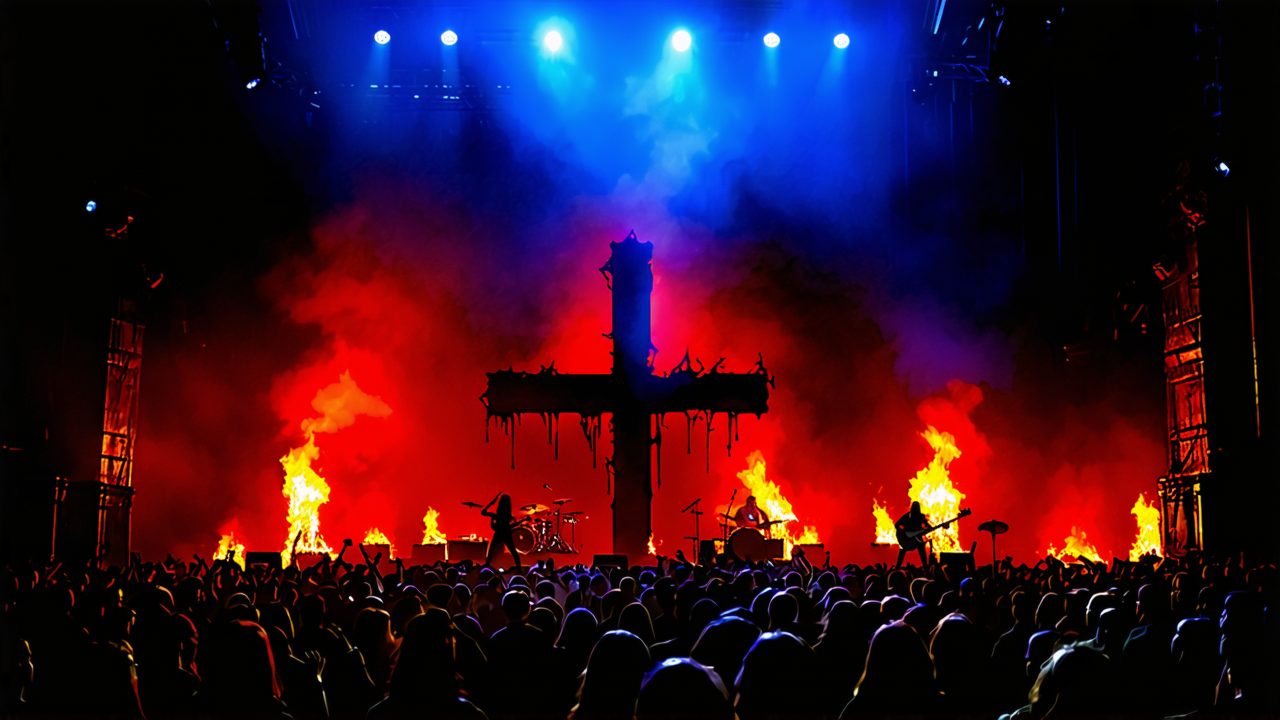Ozzy Osbourne's Unusual Request During His 1973 New Zealand Debut
Ozzy Osbourne's Unusual Request During His 1973 New Zealand Debut
By Bill Hickman
When Black Sabbath made their historic debut in New Zealand in 1973, the band’s frontman, Ozzy Osbourne, had one unusual request that still resonates with fans today. According to Barry Coburn, the music promoter who brought the band to the country, Osbourne’s request was both theatrical and symbolic — and it was fulfilled with a dramatic flair.
A Burning Cross for the Stage
As the band prepared for their performance at the Great Ngāruawāhia Music Festival, Osbourne made a specific demand: a large burning cross should be erected on the hillside behind the stage, to be ignited as the band took the stage at midnight. Coburn recalled the scene: “He said, ‘Listen, when we go onstage at midnight, we want to have a huge burning cross up on the hillside. When we come on stage, suddenly this big cross burns up on the hillside behind [us].’”
A cross made of wood and wire, wrapped in petrol-soaked rags, was hastily constructed and set alight just as the band began to play, fulfilling Osbourne’s vision. The moment became a memorable part of the festival and highlighted the frontman’s flair for theatricality, even during his early days in the industry.
Legacy of Heavy Metal
Osbourne, who passed away at the age of 76, was celebrated for his role in shaping the heavy metal genre. Coburn, who still attends heavy metal shows, said the band laid the foundation for the genre. “They were such a primary foundation of what became heavy metal,” he said. “There are still always people wearing Black Sabbath T-shirts at shows, and it’s not unusual to hear songs like ‘Paranoid’ echoing through the crowd.”
A Man of Contradictions
Despite Osbourne’s notorious reputation for his wild behavior and drug-fueled lifestyle, Coburn described him as “calm and jovial” during their time in New Zealand. “They were decent, they were just young English guys,” Coburn said. “They didn’t cause any of the grief that John Bonham and Led Zeppelin caused.”
Marty Duda, founder of the New Zealand music publication 13th Floor, echoed this sentiment. He remembered first hearing Black Sabbath’s album Paranoid on a cassette during a Boy Scouts camp and said it “changed everything.” Duda also praised Sharon Osbourne for her role in supporting her husband’s career, particularly through his struggles with addiction and his eventual transition to a successful solo artist.
Personal Anecdotes and Lasting Influence
Layton Lillas, president of the NZ Promoters Association, shared a personal story of meeting Osbourne at Auckland Airport in the late 1990s. He had only wanted a photo, but ended up with a picture of Osbourne with his late wife. “He was apologetic but said he couldn’t do any more as he needed to board his flight,” Lillas recalled.
Osbourne’s influence extended far beyond his music. His television show, The Osbournes, made him a beloved figure in pop culture, and his unique voice — described by Lillas as having “an incredibly high range” — left a lasting mark on the world of rock and metal.
As the world mourns the loss of a music legend, the legacy of Ozzy Osbourne endures — not only in the music he created but in the theatricality, charisma, and influence he brought to the world of heavy metal.
